- Home
- Jack Higgins
Eagle Has Landed Page 16
Eagle Has Landed Read online
Page 16
Sir Henry was in uniform as a lieutenant-colonel in the Home Guard, medal ribbons for the First World War and India making a splash of colour above his left breast pocket. He glanced piercingly at Devlin, one hand behind his back, the other brushing the wide sweep of his moustache.
‘So you’re Devlin?’
Devlin lurched to his feet and stood there twisting and untwisting his tweed cap in his two hands. ‘I’d like to thank you, sir,’ he said, thickening the Irish accent noticeably. ‘Mrs Grey’s told me how much you’ve done for me. It’s more than kind.’
‘Nonsense, man,’ Sir Henry said brusquely although it was observable that he stretched to his full height and placed his feet a little further apart. ‘You did your best for the old country, didn’t you? Caught a packet in France, I understand?’
Devlin nodded eagerly and Sir Henry leaned forward and examined the furrow on the left side of the forehead made by an Irish Special Branch detective’s bullet. ‘By heavens,’ he said softly. ‘You’re damn lucky to be here if you ask me.’
‘I thought I’d settle him in for you,’ Joanna Grey said. ‘If that’s all right, Henry? Only you’re so busy, I know.’
‘I say, would you, old girl?’ He glanced at his watch. ‘I’m due in Holt in half an hour.’
‘No more to be said. I’ll take him along to the cottage, show him around the marsh generally and so on.’
‘Come to think of it you probably know more about what goes on at Hobs End than I do.’ He forgot himself for a moment and slipped an arm about her waist, then withdrew it hastily and said to Devlin, ‘Don’t forget to present yourself to the police in Fakenham without delay. You know all about that?’
‘Yes, sir.’
‘Anything you want to ask me?’
‘The gun, sir,’ Devlin said. ‘I understand you want me to do a little shooting.’
‘Ah, yes. No trouble there. Call at the Grange tomorrow afternoon and I’ll see you fixed up. You can pick the bike up tomorrow afternoon, too. Mrs Grey’s told you about that, has she? Only three gallons of petrol a month, mind you, but you’ll have to make out the best way you can. We’ve all got to make sacrifices.’ He brushed his moustache again. ‘A single Lancaster, Devlin, uses two thousand gallons of petrol to reach the Ruhr. Did you know that?’
‘No, sir.’
‘There you are, then. We’ve all got to be prepared to do our best.’
Joanna Grey took his arm. ‘Henry, you’re going to be late.’
‘Yes, of course, my dear.’ He nodded to the Irishman. ‘All right, Devlin, I’ll see you tomorrow afternoon.’
Devlin actually touched his forelock and waited until they’d gone out of the front door before moving into the sitting-room. He watched Sir Henry drive away and was lighting a cigarette when Joanna Grey returned.
‘Tell me something,’ he said. ‘Are he and Churchill supposed to be friends?’
‘As I understand it, they’ve never met. Studley Grange is famous for its Elizabethan gardens. The Prime Minister fancied the idea of a quiet weekend and a little painting before returning to London.’
‘With Sir Henry falling over himself to oblige? Oh, yes, I can see that.’
She shook her head. ‘I thought you were going to say begorrah any minute. You’re a wicked man, Mr Devlin.’
‘Liam,’ he said. ‘Call me Liam. It’ll sound better, especially if I still call you Mrs Grey. He fancies you, then, and at his age?’
‘Autumn romance is not completely unheard of.’
‘More like winter, I should have thought. On the other hand it must be damn useful.’
‘More than that—essential,’ she said. ‘Anyway, bring your bag and I’ll get the car and take you along to Hobs End.’
The rain pushed in on the wind from the sea was cold and the marsh was shrouded in mist. When Joanna Grey braked to a halt in the yard of the old marsh warden’s cottage, Devlin got out and looked about him thoughtfully. It was a strange, mysterious sort of place, the kind that made the hair lift on the back of his head. Sea creeks and mudflats, the great, pale reeds merging with the mist and somewhere out there, the occasional cry of a bird, the invisible beat of wings.
‘I see what you mean about being isolated.’
She took a key from under a flat stone by the front door and opened it, leading the way into a flagged passageway. There was rising damp and the whitewash was flaking from the wall. On the left a door opened into a large kitchen-cum-living room. Again, the floor was stone flags, but there was a huge open-hearth fireplace and rush mats. At the other end of the room was an iron cooking stove and a chipped, white pot sink with a single tap. A large pine table flanked by two benches and an old wing-back chair by the fire were the only furniture.
‘I’ve news for you,’ Devlin said. ‘I was raised in a cottage exactly like this in County Down in the North of Ireland. All it needs is a bloody good fire to dry the place out.’
‘And it has one great advantage—seclusion,’ she said. ‘You probably won’t see a soul the whole time you’re here.’
Devlin opened the Gladstone bag and took out some personal belongings, clothing and three or four books. Then he ran a finger through the lining to find a hidden catch, and removed a false bottom. In the cavity he revealed was a Walther P38, a Sten gun, the silenced version, in three parts, and a land agent’s S-phone receiver and transmitter which was no more than pocket size. There was a thousand pounds in pound notes and another thousand in fivers. There was also something in a white cloth which he didn’t bother to unwrap.
‘Operating money,’ he said.
‘To obtain the vehicles?’
‘That’s right. I’ve been given the address of the right sort of people.’
‘Where from?’
‘The kind of thing they have on file at Abwehr Headquarters.’
‘Where is it?’
‘Birmingham. I thought I’d take a run over there this weekend. What do I need to know?’
She sat on the edge of the table and watched as he screwed the barrel unit of the Sten into the main body and slotted the shoulder stock in place. ‘It’s a fair way,’ she said. ‘Say three hundred miles the round trip.’
‘Obviously my three gallons of petrol isn’t going to get me very far. What can I do about that?’
‘There’s plenty of black market petrol available, at three times the normal price, if you know the right garages. The commercial variety is dyed red to make it easy for the police to detect wrongful use, but you can get rid of the dye by straining the petrol through an ordinary civilian gas mask filter.’
Devlin rammed a magazine into the Sten, checked it, then took the whole thing to pieces again and replaced it in the bottom of the bag.
‘A wonderful thing, technology,’ he observed. ‘That thing can be fired at close quarters and the only sound you can hear is the bolt clicking. It’s English, by the way. Another of the items SOE fondly imagine it’s been dropping in to the Dutch underground.’ He took out a cigarette and put it in his mouth. ‘What else should I know when I make this trip. What are the risks?’
‘Very few,’ she said. ‘The lights on the machine will have the regulation blackout fittings so there’s no problem there. The roads, particularly in country areas, are virtually traffic free. And white lines have been painted down the centre of most of them. That helps.’
What about the police or the security forces?’
She gazed at him blankly. ‘Oh, there’s nothing to worry about there. The military would only stop you if you tried to enter a restricted area. Technically this still is a Defence Area, but nobody bothers with the regulations these days. As for the police, they’re entitled to stop you and ask for your identity card or they might stop a vehicle on the main road as part of a spot check in the campaign against misuse of petrol.’
She almost sounded indignant and, remembering what he had left, Devlin had to fight an irresistible compulsion to open her eyes a little. Instead he said, ‘Is that all?
’
‘I think so. There’s a twenty-mile-an-hour speed limit in built-up areas and of course you won’t find signposts anywhere, but they started putting place names up again in many places earlier this summer.’
‘So, the odds are that I shouldn’t have any trouble?’
‘No one’s stopped me. Nobody bothers now.’ She shrugged. ‘There’s no problem. At the local WVS aid centre we have all sorts of official forms from the old Defence Area days. There was one that allowed you to visit relatives in hospital. I’ll make one out referring to some brother in hospital in Birmingham. That and those medical discharge papers from the Army should be enough to satisfy anyone. Everybody has a soft spot for a hero these days.’
Devlin grinned. ‘You know something, Mrs Grey? I think we’re going to get on famously.’ He went and rummaged in the cupboard under the sink and returned with a rusty hammer and a nail. ‘The very thing.’
‘For what?’ she demanded.
He stepped inside the hearth and drove the nail partially home at the back of the smoke-blackened beam which supported the chimney breast. Then he hung the Walther up there by its trigger guard. ‘What I call my ace-in-the-hole. I like to have one around, just in case. Now, show me round the rest of the place.’
There was an assortment of outbuildings, mostly in decay, and a barn in quite reasonable condition. There was another standing behind it on the very edge of the marsh, a decrepit building of considerable age, the stonework green with mildew. Devlin got one half of the large door open with difficulty. Inside it was cold and damp and obviously hadn’t been used for anything for years.
‘This will do just fine,’ he said. ‘Even if old Sir Willoughby comes poking his nose in I shouldn’t think he’d go this far.’
‘He’s a busy man,’ she said. ‘County affairs, magistrate, running the local Home Guard. He still takes that very seriously. Doesn’t really have much time for anything else.’
‘But you,’ he said. ‘The randy old bastard still has enough time left for you.’
She smiled. ‘Yes, I’m afraid that’s only too true.’ She took his arm. ‘Now, I’ll show you the dropping zone.’
They walked up through the marsh along the dyke road. It was raining quite hard now and the wind carried with it the damp, wet smell of rotting vegetation. Some brent geese flew in out of the mist in formation like a bombing squadron going in for the kill and vanished into the grey curtain.
They reached the pine trees, the pill boxes, the sand-filled tank trap, the warning Beware of Mines so familiar to Devlin from the photographs he had seen. Joanna Grey tossed a stone out over the sands and Patch bounded through the wire to retrieve it.
‘You’re sure?’ Devlin said.
‘Absolutely.’
He grinned crookedly. ‘I’m a Catholic, remember that if it goes wrong.’
‘They all are here. I’ll see you’re put down properly.’
He stepped over the coils of wire, paused on the edge of the sand, then walked forward. He paused again, then started to run, leaving wet footprints for the tide had not long ebbed. He turned, ran back and once again negotiated the wire.
He was immensely cheerful and put an arm around her shoulders. ‘You were right—from the beginning. It’s going to work, this thing. You’ll see.’ He looked out to sea across the creeks and the sandbanks, through the mist towards the Point. ‘Beautiful. The thought of leaving all this must break your heart.’
‘Leave?’ She looked up at him blankly. ‘What do you mean?’
‘But you can’t stay,’ he said. ‘Not afterwards. Surely you must see that?’
She looked out to the Point as if for the last time. Strange, but it had never occurred to her that she would have to leave. She shivered as the wind drove rain in hard off the sea.
At twenty to eight that evening Max Radl, in his office at the Tirpitz Ufer, decided he’d had enough for the day. He’d not felt well since his return from Brittany and the doctor he’d gone to see had been horrified at his condition.
‘If you carry on like this, Herr Oberst, you will kill yourself,’ he had declared firmly. ‘I think I can promise you that.’
Radl had paid his fee and taken the pills—three different kinds—which with any kind of luck might keep him going. As long as he could stay out of the hands of the Army medics he had a chance, but one more physical check-up with that lot and he was finished. They’d have him into a civilian suit before he knew where he was.
He opened a drawer, took out one of the pill bottles and popped two into his mouth. They were supposed to be pain killers, but just to make sure, he half-filled a tumbler with Courvoisier to wash them down. There was a knock on the door and Hofer entered. His normally composed face was full of emotion and his eyes were bright.
‘What is it, Karl, what’s happened?’ Radl demanded.
Hofer pushed a signal flimsy across the desk. ‘It’s just in, Herr Oberst. From Starling—Mrs Grey. He’s arrived safely. He’s with her now.’
Radl looked down at the flimsy in a kind of awe. ‘My God, Devlin,’ he whispered. ‘You brought it off. It worked.’
A sense of physical release surged through him. He reached inside his bottom drawer and found another glass. ‘Karl, this very definitely calls for a drink.’
He stood up, full of a fierce joy, aware that he had not felt like this in years, not since that incredible euphoria when racing for the French coast at the head of his men in the summer of 1940.
He raised his glass and said to Hofer, ‘I give you a toast, Karl. To Liam Devlin and “Up the Republic.”’
As a staff officer in the Lincoln Washington Brigade in Spain, Devlin had found a motorcycle the most useful way of keeping contact between the scattered units of his command in difficult mountain country. Very different from Norfolk, but there was that same sense of freedom, of being off the leash, as he rode from Studley Grange through quiet country lanes towards the village.
He’d obtained a driving licence in Holt that morning along with his other documents, without the slightest difficulty. Wherever he’d gone, from the police station to the local labour exchange, his cover story of being an ex-infantryman, discharged because of wounds, had worked like a charm. The various officials had really put themselves out to push things through for him. It was true what they said. In wartime, everyone loved a soldier, and a wounded hero even more so.
The motorcycle was pre-war, of course, and had seen better days. A 350 cc BSA, but when he took a chance and opened the throttle wide on the first straight, the needle swung up to sixty with no trouble at all. He throttled back quickly once he’d established that the power was there if needed. No sense in asking for trouble. There was no village policeman in Studley Constable, Joanna Grey had warned him that one occasionally appeared from Holt on a motorcycle.
He came down the steep hill into the village itself past the old mill with the waterwheel which didn’t seem to be turning and slowed for a young girl in a pony and trap carrying three milk churns. She wore a blue beret and a very old, First-World-War trenchcoat at least two sizes too big for her. She had high cheekbones, large eyes, a mouth that was too wide and three of her fingers poked through holes in the woollen gloves she wore.
‘Good day to you, a colleen,’ he said cheerfully as he waited for her to cross his path to the bridge. ‘God save the good work.’
Her eyes widened in a kind of astonishment, her mouth opened slightly. She seemed bereft of speech and clicked her tongue, urging the pony over the bridge and into a trot as they started up the hill past the church.
‘A lovely, ugly little peasant,’ he quoted softly, ‘who turned my head not once, but twice.’ He grinned. ‘Oh, no, Liam, me old love. Not that. Not now.’
He swung the motorcycle in towards the Studley Arms and became aware of a man standing in the window glaring at him. An enormous individual of thirty or so with a tangled black beard. He was wearing a tweed cap and an old reefer coat.
And what in the hell
have I done to you, son? Devlin asked himself. The man’s gaze travelled to the girl and the trap just breasting the hill beside the church and moved back again. It was enough. Devlin pushed the BSA up on to its stand, unstrapped the shotgun in its canvas bag which was hanging about his neck, tucked it under his arm and went inside.
There was no bar, just a large comfortable room with a low-beamed ceiling, several high-backed benches, a couple of wooden tables. A wood fire burned brightly on an open hearth.
There were only three people in the room. The man sitting beside the fire playing a mouth organ, the one with the black beard at the window and a short, stocky man in shirt sleeves who looked to be in his late twenties.
‘God bless all here,’ Devlin announced, playing the bog Irishman to the hilt.
He put the gun in its canvas bag on the table and the man in the shirt sleeves smiled and stuck out his hand. ‘I’m George Wilde the publican here and you’ll be Sir Henry’s new warden down on the marshes. We’ve heard all about you.’
‘What, already?’ Devlin said.
‘You know how it is in the country.’
‘Or does he?’ the big man at the window said harshly.
‘Oh, I’m a farm boy from way back myself,’ Devlin said.
Wilde looked troubled, but attempted the obvious introduction. ‘Arthur Seymour and the old goat by the fire is Laker Armsby.’
As Devlin discovered later, Laker was in his late forties, but looked older. He was incredibly shabby, his tweed cap torn, his coat tied with string and his trousers and shoes were caked with mud.
‘Would you gentlemen join me in a drink?’ Devlin suggested.
‘I wouldn’t say no to that,’ Laker Armsby told him. ‘A pint of brown ale would suit me fine.’
Seymour drained his flagon and banged it down on the table. ‘I buys my own.’ He picked up the shotgun and hefted it in one hand. ‘The Squire’s really looking after you, isn’t he? This and the bike. Now I wonder why you should rate that, an incomer like you, when there’s those amongst us who’ve worked the estate for years and still must be content with less.’

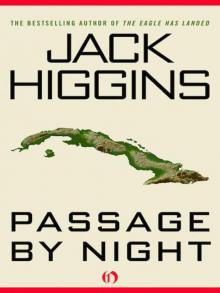 Passage by Night (v5)
Passage by Night (v5)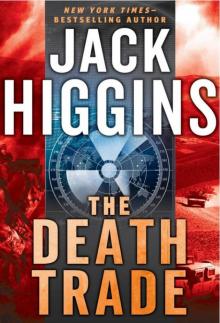 The Death Trade sd-20
The Death Trade sd-20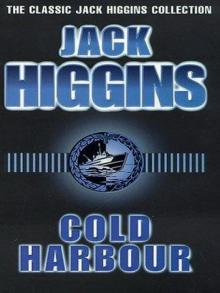 Cold Harbour
Cold Harbour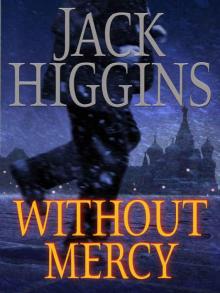 Without Mercy
Without Mercy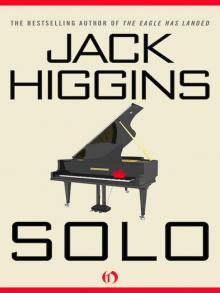 Solo (Aka the Cretan Lover)(1980)
Solo (Aka the Cretan Lover)(1980) First Strike
First Strike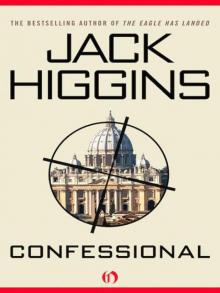 Confessional - Devlin 03 (v5)
Confessional - Devlin 03 (v5)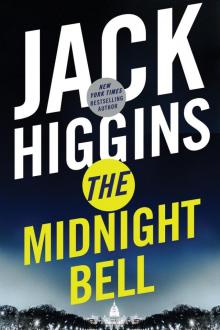 The Midnight Bell
The Midnight Bell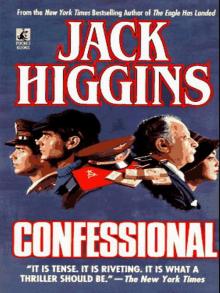 Confessional
Confessional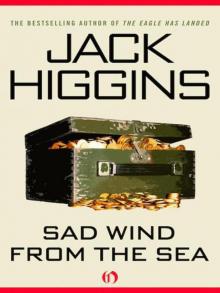 Sad Wind from the Sea (v5)
Sad Wind from the Sea (v5)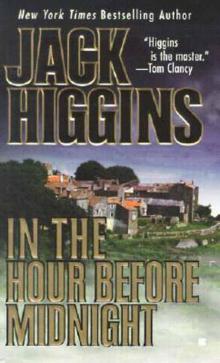 In The Hour Before Midnight aka The Sicilian Heritage
In The Hour Before Midnight aka The Sicilian Heritage Wrath of the Lion
Wrath of the Lion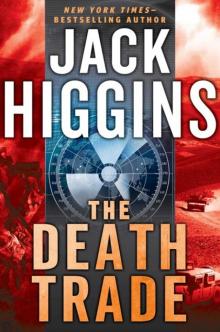 SDillon 20 - The Death Trade
SDillon 20 - The Death Trade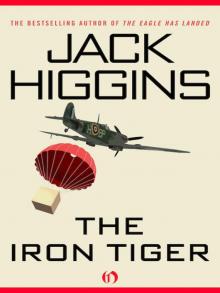 the Iron Tiger (1974)
the Iron Tiger (1974)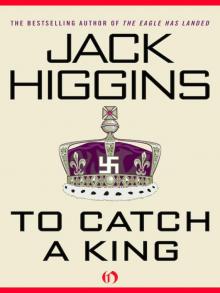 To Catch a King
To Catch a King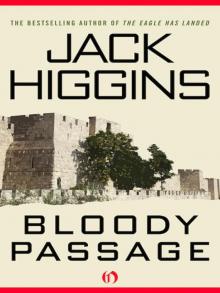 Bloody Passage (1999)
Bloody Passage (1999)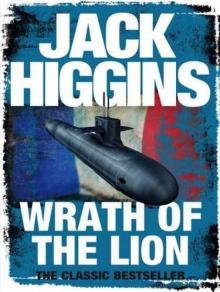 Wrath of the Lion sd-8
Wrath of the Lion sd-8 Sharp Shot
Sharp Shot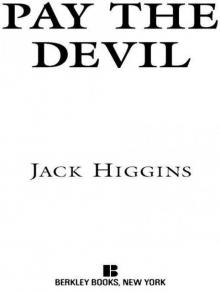 Pay the Devil (v5)
Pay the Devil (v5) A Devil Is Waiting
A Devil Is Waiting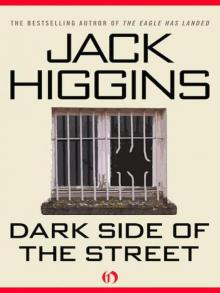 Dark Side of the Street - Simon Vaughn 01 (v5)
Dark Side of the Street - Simon Vaughn 01 (v5)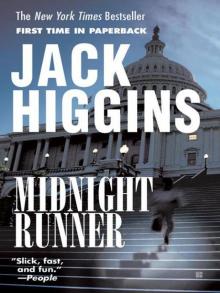 Midnight Runner - Sean Dillon 10
Midnight Runner - Sean Dillon 10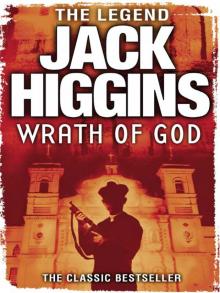 Wrath of God
Wrath of God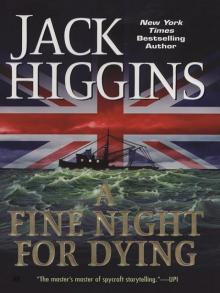 A Fine Night for Dying
A Fine Night for Dying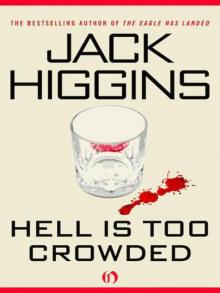 Hell Is Too Crowded v5)
Hell Is Too Crowded v5)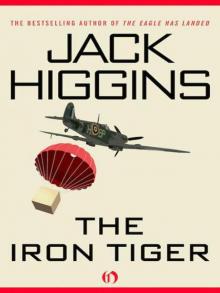 the Iron Tiger (v5)
the Iron Tiger (v5)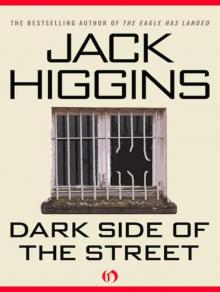 Dark Side of the Street pc-5
Dark Side of the Street pc-5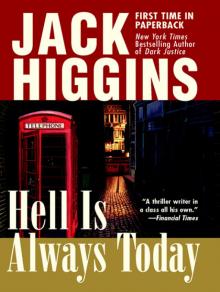 Hell Is Always Today
Hell Is Always Today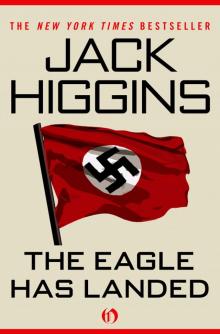 Eagle Has Landed
Eagle Has Landed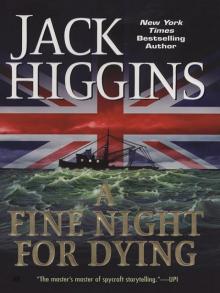 A Fine Night for Dying pc-6
A Fine Night for Dying pc-6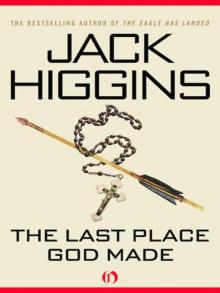 the Last Place God Made (v5)
the Last Place God Made (v5)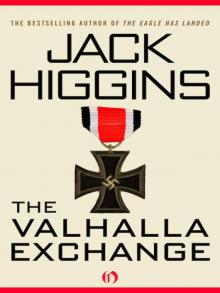 the Valhalla Exchange (1976)
the Valhalla Exchange (1976)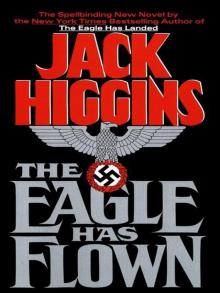 The Eagle Has Flown
The Eagle Has Flown Sure Fire
Sure Fire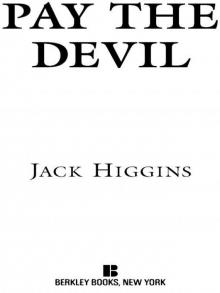 Pay the Devil (1999)
Pay the Devil (1999)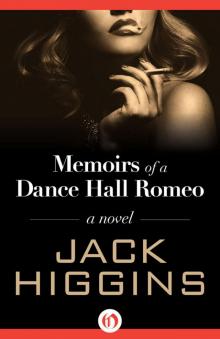 Memoirs of a Dance Hall Romeo
Memoirs of a Dance Hall Romeo![a Prayer for the Dying (1974)[1] Read online](http://i1.bookreadfree.com/i1/04/02/a_prayer_for_the_dying_19741_preview.jpg) a Prayer for the Dying (1974)[1]
a Prayer for the Dying (1974)[1]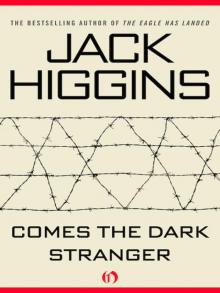 Comes the Dark Stranger
Comes the Dark Stranger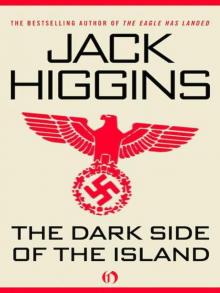 Dark Side Of the Island (v5)
Dark Side Of the Island (v5)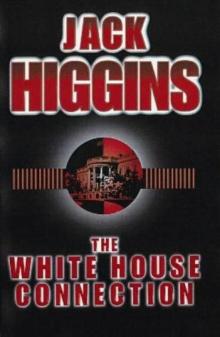 The White House Connection sd-7
The White House Connection sd-7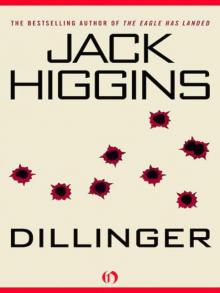 Dillinger (v5)
Dillinger (v5) Eye of the Storm
Eye of the Storm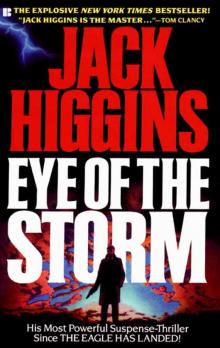 Eye Of The Storm aka Midnight Man
Eye Of The Storm aka Midnight Man A Darker Place
A Darker Place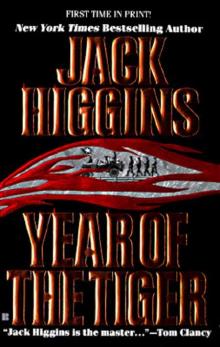 Year Of The Tiger
Year Of The Tiger Death Run
Death Run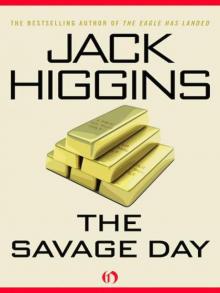 the Savage Day - Simon Vaughn 02 (v5)
the Savage Day - Simon Vaughn 02 (v5)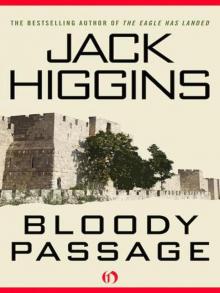 Bloody Passage (v5)
Bloody Passage (v5)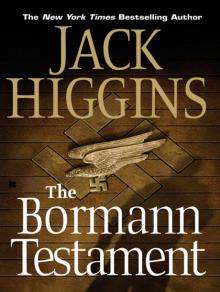 The Bormann Testament
The Bormann Testament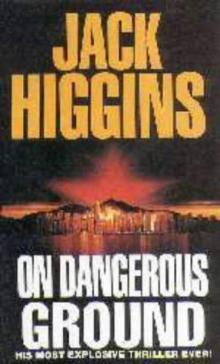 On dangerous ground sd-3
On dangerous ground sd-3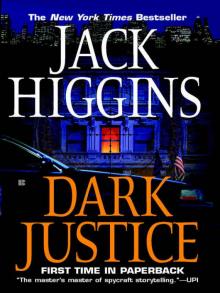 Dark Justice
Dark Justice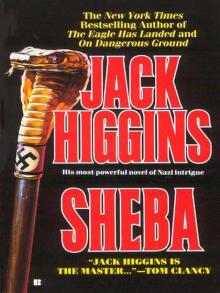 Sheba
Sheba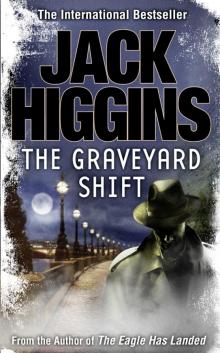 The Graveyard Shift
The Graveyard Shift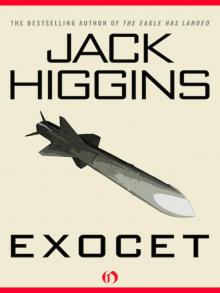 Exocet (1983)
Exocet (1983)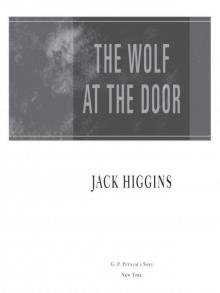 The Wolf at the Door
The Wolf at the Door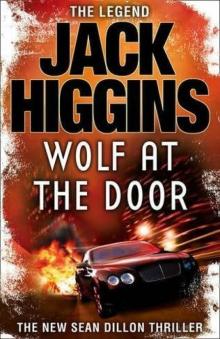 The wolf at the door sd-17
The wolf at the door sd-17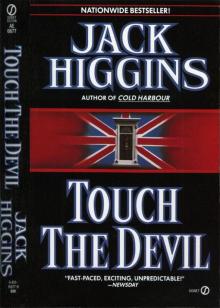 Touch The Devil
Touch The Devil The President’s Daughter
The President’s Daughter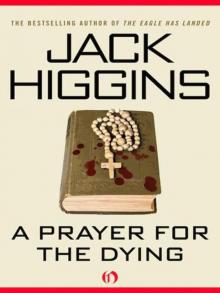 A Prayer for the Dying (v5)
A Prayer for the Dying (v5)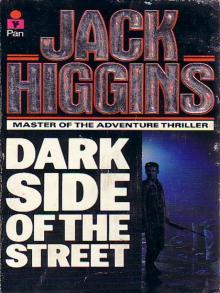 Dark Side Of The Street
Dark Side Of The Street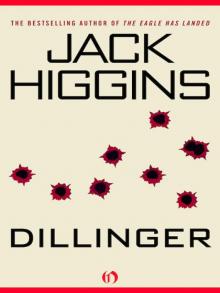 Dillinger (1983)
Dillinger (1983)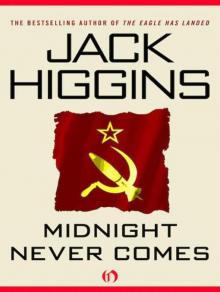 Midnight Never Comes pc-4
Midnight Never Comes pc-4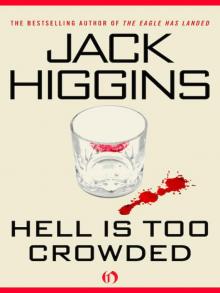 Hell Is Too Crowded (1991)
Hell Is Too Crowded (1991)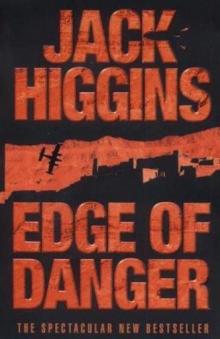 Edge of Danger sd-9
Edge of Danger sd-9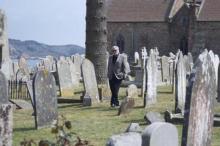 The Thousand Faces of Night (v5)
The Thousand Faces of Night (v5)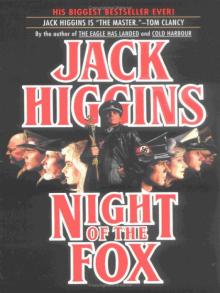 Night Of The Fox
Night Of The Fox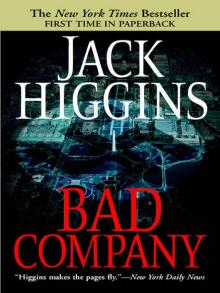 Bad Company
Bad Company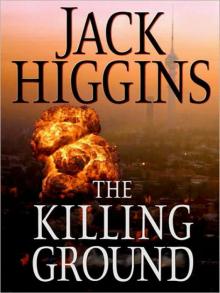 The Killing Ground
The Killing Ground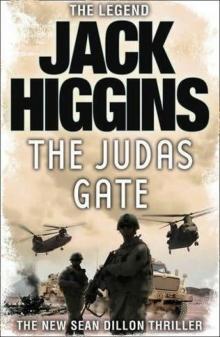 The Judas gate sd-18
The Judas gate sd-18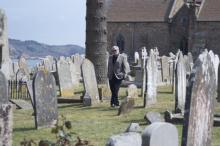 The Thousand Faces of Night (1961)
The Thousand Faces of Night (1961)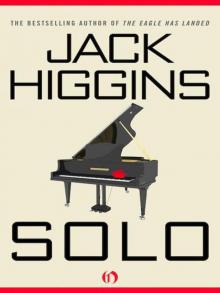 Solo (Aka the Cretan Lover) (v5)
Solo (Aka the Cretan Lover) (v5)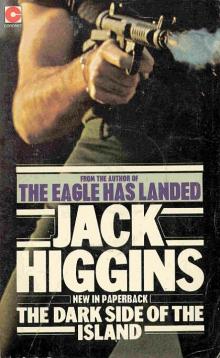 The Dark Side Of The Island
The Dark Side Of The Island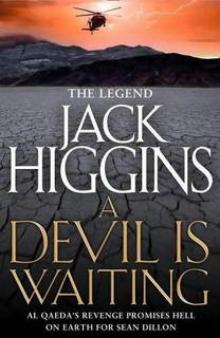 A Devil is vaiting sd-19
A Devil is vaiting sd-19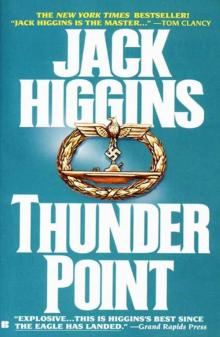 Thunder Point
Thunder Point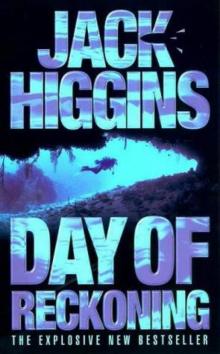 Day of Reckoning sd-8
Day of Reckoning sd-8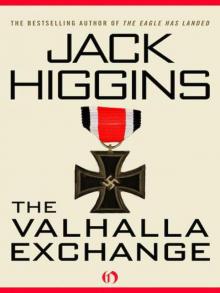 the Valhalla Exchange (v5)
the Valhalla Exchange (v5)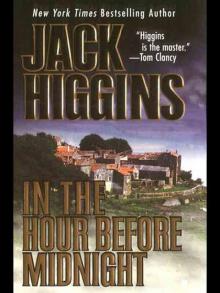 In the Hour Before Midnight
In the Hour Before Midnight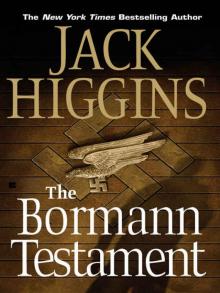 The Bormann Testament (The Testament of Caspar Schultz)
The Bormann Testament (The Testament of Caspar Schultz) The Judas Gate
The Judas Gate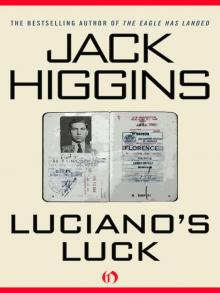 Luciano's Luck
Luciano's Luck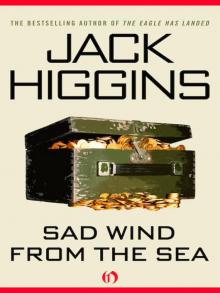 Sad Wind from the Sea (1959)
Sad Wind from the Sea (1959)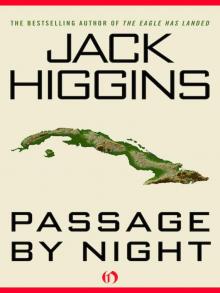 Passage by Night (1987)
Passage by Night (1987)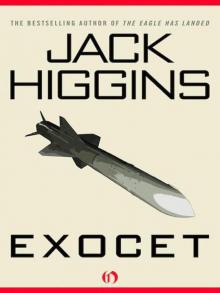 Exocet (v5)
Exocet (v5)